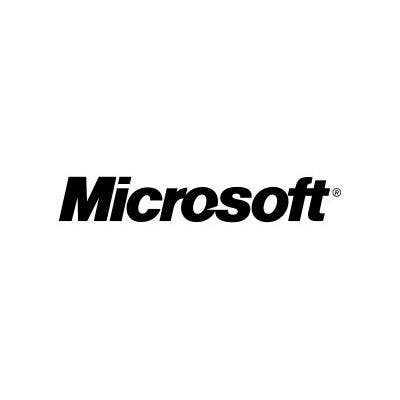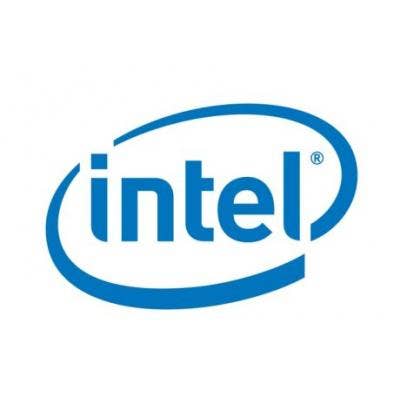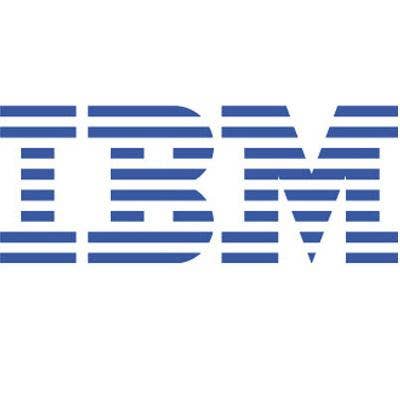10 Microsoft Predictions For 2010

The second half of 2009 has seen what Microsoft is calling the biggest product launch wave in company history. Windows Mobile 6.5, Windows 7, Windows Server 2008 R2 and Exchange 2010 are already out the door. Windows Azure, Sharepoint 2010, Office 2010, and SQL Server 2008 R2 are coming next year. At what point does the market -- and the channel -- start getting overwhelmed with the barrage of Microsoft marketing? When VARs start hearing marketing messages in their sleep, that's a red flag.
Microsoft product release fatigue will be one of the most talked about illnesses of 2010. The symptoms of this ailment include:
- Panic from not being able to differentiate one product marketing pitch from another
- Sweating from trying to keep track of product release rumors and timeframes
- Randomly occurring outbursts of screaming that take awhile to subside

Despite the rough economy, Microsoft bravely entered the unforgiving world of retail with the opening of its first two Microsoft Stores in Mission Viejo, Calif. and Scottsdale, Ariz. In addition to borrowing heavily from Apple's retail locations, the Microsoft Stores showcase Windows 7-powered hardware from Microsoft's OEM partners, as well as gaming advancements.
There are plenty of cool products to look at and touch at Microsoft Stores, but they're never going to be the temples of commerce that Apple stores are. In Apple stores, there's a palpable sense of longing as visitors mill about while silently doing the math on purchases they probably can't afford, but end up making anyway. That's not the case at Microsoft Stores because, as the software giant often reminds us, PCs are much less expensive than Macs, which makes the decision to buy much less agonizing.
All of this suggests that Microsoft Stores aren't going to drive enough sales to justify their pricey locations. While revenue may not be Microsoft's primary goal in getting into retail, unless the stores are financially successful, Microsoft's already beleaguered shareholders are not going to be endorsing an expansion next year.

There's an enormous amount of pent-up demand for Windows 7, and that's not just because it's a solid OS. All those companies that skipped Vista are using Windows XP PCs that are plodding dinosaurs compared to today's powerful new models. So unless another economic asteroid strikes global economies, Microsoft is going to see a lot of customers migrating to Windows 7 next year.
By the end of 2010, IDC predicts that more than 177 million copies of Windows 7 will be installed worldwide, with 60 million of those in the U.S. Windows 7 shipments will reach 272 million in 2013, according to IDC.

Windows Azure, Microsoft's cloud computing platform, goes into production on Jan. 1 and debuts as a paid service on Feb. 1. Azure is a big bet on Microsoft's part that necessitated the construction of massive data centers, and the software giant will need to get developers onto the platform quickly to justify that investment.
But while large enterprises are already building applications on Azure, small and midsize firms will take their time gravitating to the platform. That's because these firms see the cost benefits and efficiencies of Azure but aren't as equipped in the near term to take advantage of them. Of course, if the pricing model for Azure makes sense, these companies will rush to the platform. But that's a big if.
Given the fierce competition that exists in cloud computing, the market will quickly render a verdict on whether the Azure business model makes sense. Microsoft has already slashed the price of its Business Online Productivity Suite and may find it necessary to lower Azure pricing at some point next year to get the ball rolling.

One of Microsoft's proudest moments of 2009 came at its Financial Analyst Meeting in July, where CEO Steve Ballmer crowed about the positive impact on Microsoft's brand perception stemming from its "Laptop Hunters" ads, in which the software giant hit back directly at Apple for the first time. Many industry watchers expected Apple to come up with an effective counterpunch, but that hasn't happened. In fact, most of Apple's "Get A Mac" ads this year have been rather unimaginative.
Ballmer cited recent independent survey data that shows perceptions of value among 18- to 24-year-olds shifting steadily away from Apple and toward Microsoft. "I think so far [the advertising] has proven to be quite effective," Ballmer told analysts. This suggests Microsoft will keep the pressure on Apple next year with ads that will have its channel partners giving standing ovations in front of their television sets.

Microsoft is feeling its oats over this year's advertising offensive against Apple. In 2010, expect Microsoft to start doing the same to Google, which earlier this year called Microsoft out in outdoor billboards that claimed Microsoft Office is more complex than Google Apps. This attack has yet to be repaid, but Microsoft isn't going to let this slide.
Microsoft, of course, sees itself engaged in mortal combat with Google in multiple business areas. Partners would like to see Microsoft take aim at what they perceive to be the brazen smarminess of Google's "Don't Be Evil" motto. According to solution providers, if anyone's being evil these days, it's Google.
"Google's retention of user information and cooperation with repressive regimes is what truly scares me most," said Joseph Giegerich, managing partner with Gig Werks, a Yonkers, N.Y.-based Microsoft partner. "But that's an opportunity for Microsoft and others to bring this unpleasant quality to everyone's attention and 'disrupt' Google's public perception campaign."

It's been a disastrous year for Microsoft's Windows Mobile business, as the full extent of its failure to keep pace with the rest of the wireless device industry has become glaringly apparent. Microsoft finally brought Windows Mobile 6.5 to market in May, but when devices arrived in October, the industry could barely disguise its indifference.
Microsoft says Windows Mobile 7 will get it back in the mobile game, but that pledge is starting to look like a Hail Mary pass. Microsoft partners are wary of any promise that rests heavily on a single product release. And even if Windows Mobile 7 is as good as Microsoft says, it's not like the rest of the mobile industry will be treading water until it arrives at some point in the future that Microsoft refuses to clarify.

For developers, Sharepoint 2007 was complex and non-intuitive. Third-party application integration and workflow tools were unwieldy. But in Sharepoint 2010, Microsoft focused on tooling and project support and, for the first time, made it possible for developers to use Visual Studio to build Sharepoint applications.
Sharepoint 2010 also includes deeper integration with Office, support for Web audio and video, and more hooks to Microsoft's Silverlight technology. A new feature called Business Connectivity Services allows developers to funnel data from external line of business applications into Sharepoint and Office more easily than in the past. As a result, Sharepoint-related development will boom in 2010 and help Microsoft's healthiest cash cow to keep on thriving.

In December, Robert Youngjohns, Microsoft's president of North American sales and marketing, fielded questions at the Barclays Capital Technology Conference in San Francisco and offered the following telling tidbit. "We think we can change the rules around search, and that's why we're driving so hard with Bing," Youngjohns said. "I think there are different ways of approaching search, and some of those ways are going to be differentiated."
In taking on Google in search, Microsoft faces a challenge that'll require stirring up all the fear, uncertainty and doubt it can muster. Microsoft is trying to do search "better" than Google, but so far the only way it has pledged to do so is through vaguely defined "differentiation." But it's debatable whether search is a market that can be won with such a tactic.
Microsoft's search deal with Yahoo and its partnerships with the likes of Wolfram Alpha look like positive steps, but it'll take years for this to translate into more market share for Bing. Microsoft says it's committed to spending a lot on search in the coming five years, and it's going to have to in order to remain a contender.

With the recently released Silverlight 4, testers have noticed that Microsoft has already diverged from its stated goal of making Silverlight a cross-platform technology. And with HTML 5 looming as a standard for all Web browsers, some industry figures have raised the possibility that Microsoft is shaping Silverlight as an alternative, proprietary standard.
Microsoft insists that Silverlight is designed to let Microsoft developers leverage existing skills, but in the recently released Silverlight 4 beta, testers have already noticed platform-specific features like Component Object Model automation, which is only supported in Windows. As Microsoft gears up to release Silverlight 4 next year, this issue is certain to get more attention.